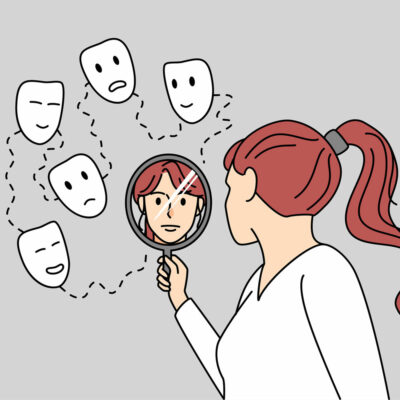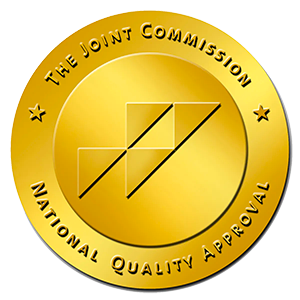By Mandy Parsons
The National Institute of Mental Health (NIMH) reports that an estimated 9% of US adults have some type of personality disorder. But what is a personality disorder?
A personality disorder is defined by the Diagnostic and Statistical Manual of Mental Disorders, Fifth Edition (DSM-5) as “an enduring pattern of inner experience and behavior that deviates markedly from the expectations of the individual’s culture.”
Although personality disorders affect both men and women, some genders are more prone to specific types.
Someone affected by a personality disorder will display rigid thinking and behaviors that impact their ability to function in everyday life. It will also cause you great personal and relational distress.
Personality disorders most often begin in adolescence and continue through adulthood. Although personality disorders affect both men and women, some genders are more prone to specific types.
The DSM-5 has identified 10 types of personality disorders that are grouped into three categories.
What Are the Types of Personality Disorders?
The three groups of personality disorders are Cluster A (Odd/Eccentric), Cluster B (Dramatic/Erratic), and Cluster C (Anxious/Inhibited):
Cluster A Personality Disorders
Paranoid Those with paranoid personality disorder exhibit a general distrust of people. They often suspect, unjustifiably so, that others are out to mistreat or harm them.
Schizoid People affected by this condition lack an interest in close relationships. Someone with schizoid personality disorder has poor relational skills, shows a limited range of emotion, and usually chooses to be alone.
Schizotypal Schizotypal personalities are uncomfortable with intimate relationships and may experience social anxiety. They are frequently described as having eccentric speech, dress, beliefs, mannerisms, or reactions.
Cluster B Personality Disorders
Borderline Borderline personality disorder is marked by difficulty regulating emotions, impulsive behavior, and consequently, unstable relationships.
Histrionic Attention-seeking behavior is a hallmark of histrionic personality disorder. These individuals typically have a distorted self-image and look to others for their sense of worth.
Narcissistic Narcissistic personality disorder is distinguished by an inflated ego, desire for constant praise and admiration, lack of empathy toward others, and an inability to form meaningful relationships.
Antisocial Those with antisocial personality disorder disregard the feelings and rights of others. They may challenge authority or act out violently without remorse.
Cluster C Personality Disorders
Avoidant Avoidant personality disorder is rooted in fear of rejection by others. People with this disorder have a diminished sense of self-worth and isolate to avoid feeling embarrassed or inadequate.
Dependent This condition is unique in that you feel a need to be cared for by someone else. You fear being separated from that person and often don’t know how to think or act apart from them.
Obsessive-Compulsive Obsessive-compulsive personality disorder involves a preoccupation with detail, rules, and orderliness. This disorder is fueled by the need for control, which interferes with an ability to complete tasks and have functional relationships.
The most frequently diagnosed personality disorders are borderline and antisocial. Cleveland Clinic also reports that antisocial personality disorder most often affects males, whereas borderline, histrionic, and dependent personality disorders are more common in females.
Personality Disorder Symptoms and Causes
Each cluster of personality disorders has a unique set of symptoms. For example, Cluster A personalities typically present as socially awkward. According to Medical News Today, this can range from “a negative view of people, to a complete lack of interest in them, depending on the disorder.”
 Cluster B disorders are characterized by difficulties with impulse control, emotional regulation, and maintaining relationships. Cluster C symptoms are driven by intense fear: fear of being alone, fear of rejection by others, or fear of not being able to control a situation.
Cluster B disorders are characterized by difficulties with impulse control, emotional regulation, and maintaining relationships. Cluster C symptoms are driven by intense fear: fear of being alone, fear of rejection by others, or fear of not being able to control a situation.
Regardless of the type, Cleveland Clinic reports that all personality disorders stem from two main issues: 1) lack of a clear self-image, and 2) problematic beliefs or behaviors that cause relationships to suffer.
Experts speculate on the potential causes of personality disorders. Many believe there is a genetic link, as some personality traits appear to be predisposed to certain personality disorders.
Personality disorders can also be triggered by distressing events like childhood trauma, neglect, or abuse. Finally, societal factors are thought to play a role, as the prevalence of personality disorders vary in different cultures.
Personality Disorder Effects and Treatment
As with any mental illness, personality disorders can significantly impact your health. Many who suffer from a personality disorder also battle a coexisting condition such as anxiety, depression, eating disorders, or substance use.
Many who suffer from a personality disorder also battle a coexisting condition such as anxiety, depression, eating disorders, or substance use.
Furthermore, personality disorders interfere with your quality of life. They can cause problems at work, in relationships, and social functioning. Studies show that personality disorders are associated with increased risk of divorce, unemployment, domestic abuse, homelessness, crime, traumatic accidents, and death by suicide.
But can personality disorders be treated? Is it possible for you to overcome a personality disorder? Although often challenging to manage, there are options for personality disorder treatment.
The most common treatment approaches are psychotherapy, medication, or a combination of both. Medications treat the symptoms, and psychotherapy, also known as talk therapy, can help pinpoint and handle problematic thoughts and behaviors. Disorders respond differently to various therapies, so it may take time to find the right fit for you.
At Bournewood Health Systems, we offer hope to those struggling with personality disorders. We understand that unhealthy thinking and behaviors don’t just stop. Our qualified team of professionals works to help identify personality disorders and other co-occurring issues to develop a plan for long-lasting recovery. Contact us today to learn more about our programs.


